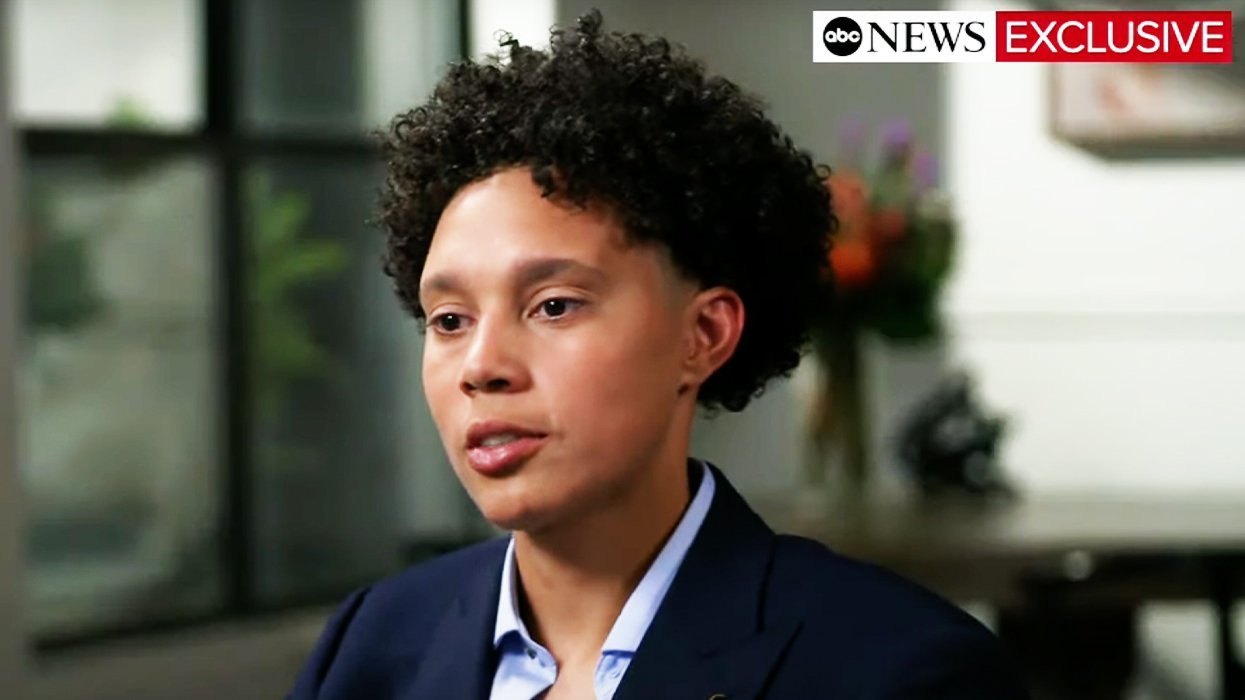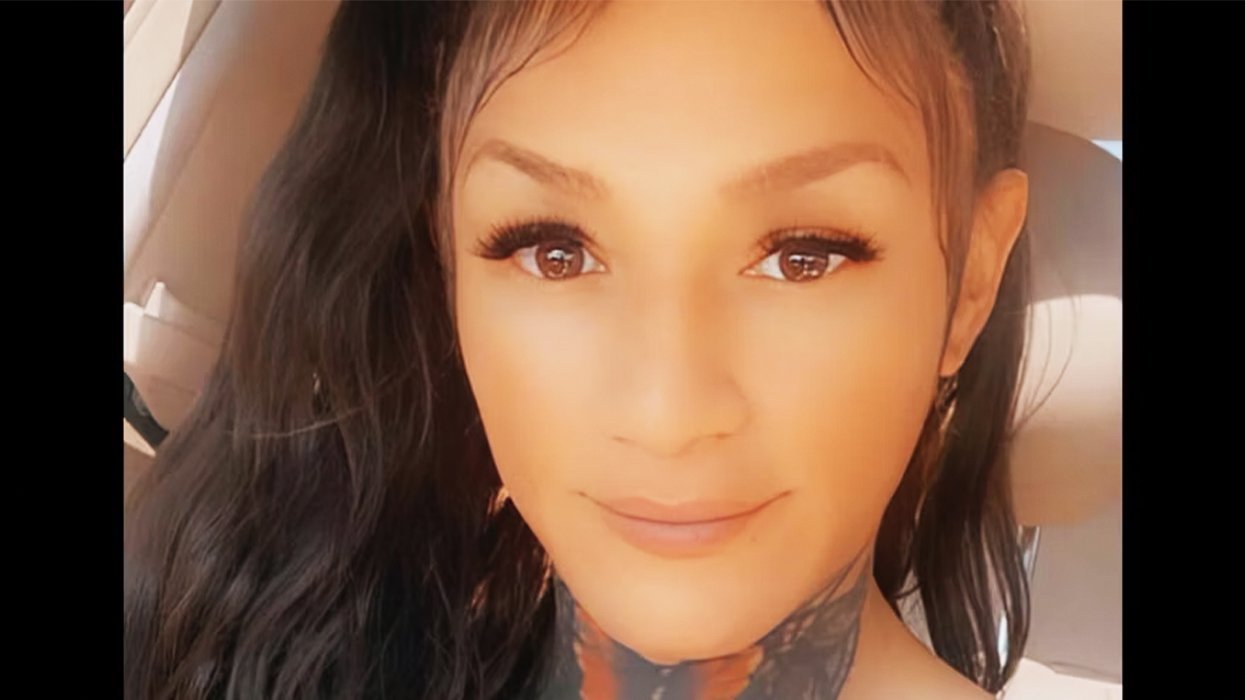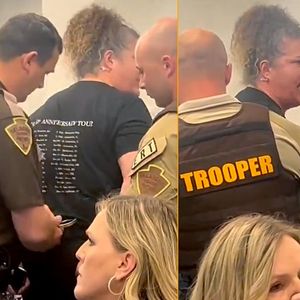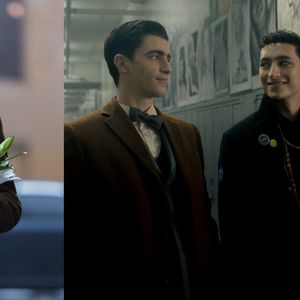
CONTACTStaffCAREER OPPORTUNITIESADVERTISE WITH USPRIVACY POLICYPRIVACY PREFERENCESTERMS OF USELEGAL NOTICE
© 2024 Pride Publishing Inc.
All Rights reserved
All Rights reserved
By continuing to use our site, you agree to our Private Policy and Terms of Use.
While the Pentagon surveys the spouses of military members about the "don't ask, don't tell" policy, Servicemembers Legal Defense Network is highlighting the perspectives of military family members affected by the discriminatory policy.
On Friday some 150,000 spouses of military members began to receive the surveys asking them how they would feel if the policy were repealed. SLDN wants the Pentagon to hear from the family members of gay service members, too.
"As the Pentagon reaches out to 150,000 straight couples on how their lives are impacted, these letters will share the perspective of those forced to serve under this law alongside their loved ones," writes the group.
The letter for Monday is from Lynne Kennedy, partner to Capt. Joan Darrah, U.S. Navy (Ret.). The couple has been together for 20 years this December.
Read the letter below.
General Carter F. Ham
Commanding General, U.S. Army Europe
Co-Chair, Comprehensive Review Working Group
Hon. Jeh C. Johnson
General Counsel, U.S. Department of Defense
Co-Chair, Comprehensive Review Working Group
CC:
U.S. Sen. Carl M. Levin
Chairman, Senate Armed Services Committee
U.S. Sen. John S. McCain
Ranking Member, Senate Armed Services Committee
U.S. Sen. Joseph I. Lieberman
Member, Senate Armed Services Committee
General Ham and Mr. Johnson:
In 1990 -- while working as a reference librarian at the Library of Congress -- I met Joan Darrah, an active duty Naval Officer. I already knew about "Don't Ask, Don't Tell," but I soon woke up to the harsh reality that loved ones of gay and lesbian family members are forced to serve in silence, too.
Over the years, Joan had adjusted to living two lives -- in the closet at work and out after hours. For me, it was a bit of an adjustment as I had been fortunate to work for an employer who valued my skills and expertise and realized that my being a lesbian in no way detracted from my ability to do a great job.
I knew that Joan could be deployed at any moment. She may be away from home for two or three years. I realized that being with an active duty military officer was even more constricting than I could have possibly imagined and I worried constantly about Joan's well being. Yet, through it all, I knew our relationship was worth the compromises. I knew we had to make it work for Joan to continue to serve our Country.
There were so many things that we had to be careful about. For example, Joan had asked that I not call her at work unless it was truly an emergency. When we were out in public if Joan saw someone from work, I learned to "disappear," until Joan's co-worker moved on. We didn't dare go to nice restaurants on Valentine's Day or even Saturday nights. We could not show any familiarity while out in public. I went to parties at colleagues' homes alone lest a guest I didn't know learn that Joan was in the Navy.
The events of September 11, 2001, caused us both
appreciate more fully the true impact of DADT on our lives and the
reality of our mutual sacrifices. At 8:30 a.m. that morning, Joan went
to a meeting in the Pentagon. At 9:30 a.m., she left that meeting. At
9:37 a.m., the plane flew into the Pentagon and destroyed the exact
space that Joan had left less than eight minutes earlier, killing seven
of her colleagues.
In the days and weeks that followed, Joan went
to several funerals and memorial services for her co-workers who had
been killed. Most people attended these services with their spouses
whose support was critical at this difficult time, yet Joan was forced
to go alone, even though I really wanted to be with her to provide
support.
As the numbness began to wear off, it hit me how
incredibly alone I would have been had Joan been killed. The military is
known for how it pulls together and helps people; we talk of the
"military family," which is a way of saying we always look after each
other, especially in times of need. But, none of that support would have
been available for me, because under DADT, I didn't exist.
In
fact, I would have been one of the last people to know had Joan been
killed, because nowhere in her paperwork or emergency contact
information had Joan dared to list my name.
Whenever I hear Joan
recount the events of that day, I relive it and realize all over again
how devastated I would have been had she been killed. I also think of
the partners of service members injured or killed in Iraq and
Afghanistan. They are unable to get any support from the military and
they must be careful about the amount of support they offer to their
closeted service member loved ones.
The events of September 11th
caused us to stop and reassess exactly what was most important in our
lives. During that process, we realized that this discriminatory law was
causing us to make a much bigger sacrifice than either of us had ever
admitted.
Eight months later, in June 2002, Joan retired from the
U.S. Navy, and I retired from the Library of Congress. If it wasn't for
DADT, we might both still be serving in our respective positions.
Lynne Kennedy
Want more breaking equality news & trending entertainment stories?
Check out our NEW 24/7 streaming service: the Advocate Channel!
Download the Advocate Channel App for your mobile phone and your favorite streaming device!
From our Sponsors
Most Popular
Here Are Our 2024 Election Predictions. Will They Come True?
November 07 2023 1:46 PM
Meet all 37 of the queer women in this season's WNBA
April 17 2024 11:24 AM
17 Celebs Who Are Out & Proud of Their Trans & Nonbinary Kids
November 30 2023 10:41 AM
Which State Is the Queerest? These Are the States With the Most LGBTQ+ People
December 11 2023 10:00 AM
These 27 Senate Hearing Room Gay Sex Jokes Are Truly Exquisite
December 17 2023 3:33 PM
10 Cheeky and Homoerotic Photos From Bob Mizer's Nude Films
November 18 2023 10:05 PM
42 Flaming Hot Photos From 2024's Australian Firefighters Calendar
November 10 2023 6:08 PM
These Are the 5 States With the Smallest Percentage of LGBTQ+ People
December 13 2023 9:15 AM
Here are the 15 gayest travel destinations in the world: report
March 26 2024 9:23 AM
Watch Now: Advocate Channel
Trending Stories & News
For more news and videos on advocatechannel.com, click here.
Trending Stories & News
For more news and videos on advocatechannel.com, click here.
Latest Stories
Closets are for cowboy boots: A tribute to David Mixner
May 01 2024 8:32 PM
Mississippi Republicans fail to pass trans bathroom ban and law defining sex
May 01 2024 5:25 PM

PLUS
HealthWhy is a mother’s mental health so important? A doctor explains
May 01 2024 1:55 PM

Pride
Yahoo Feed















































































